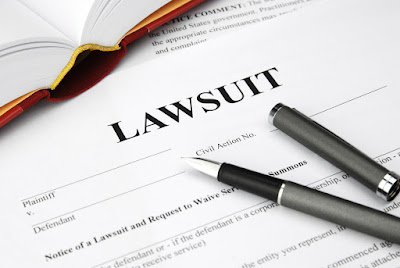Unless you went to law school, it is entirely possible that you are unfamiliar with many of the different terms and definitions relating to the legal field. For example, many people know what a lawsuit is, but they may not be familiar with the term, “tort.” While the terms sound nothing alike, torts are simply certain types of lawsuits. The team at Deputy & Mizell, LLC is here to help you better your understanding of this common legal term.
Torts ~ A Broad Definition
To put it simply, a tort is a civil wrong that causes another person to suffer injury, harm, or loss. Tort law covers a vast array of different lawsuits, including assault, products liability, trespassing, and negligence. Some tort lawsuits are occasionally punishable by fines or imprisonment, but they typically result in damages (financial compensation) awarded to the plaintiff.
Torts ~ Specific Types
While each specific tort case is unique, torts come in three overriding categories: negligent torts, intentional torts, and strict liability torts.
Negligent Torts
Negligent torts are exactly what their name implies – they are torts that result when the negligence of one party causes harm or loss to another. This negligence can come in a variety of different forms and result in several different types of lawsuits, including medical negligence and premises liability. We all have an obligation not to put others in harm’s way, and we could be the defendant in a negligent tort lawsuit if we fail to do so.
Unlike their negligence counterparts, intentional torts occur when one party knowingly and intentionally causes another person harm or loss. Examples of intentional torts include invasion of privacy, assault, fraud, trespassing. However, not every injury will result in an intentional tort lawsuit; the courts will have to evaluate whether or not the defendant intentionally injured the other party or if he/she was simply behaving in a reckless manner.
Strict Liability Torts
Strict liability torts are slightly different. Essentially, strict liability tort aims to control actions that are considered necessary, but that can prove to be dangerous. Examples include transporting or handling hazardous substances or keeping some wild animals in captivity. When someone is injured at the hands of one of these necessary but dangerous acts, he may have a right to financial compensation in a strict liability tort.
Questions? We Can Help!
The many different legal fields are as complex as they are diverse. With so many different things to remember, having a licensed, experienced attorney on your side can be a huge help. If you are looking for an attorney in Lebanon, Tuscumbia, or the Lake of the Ozarks, keep Deputy & Mizell, LLC in mind! We would be happy to assist with your legal needs.




